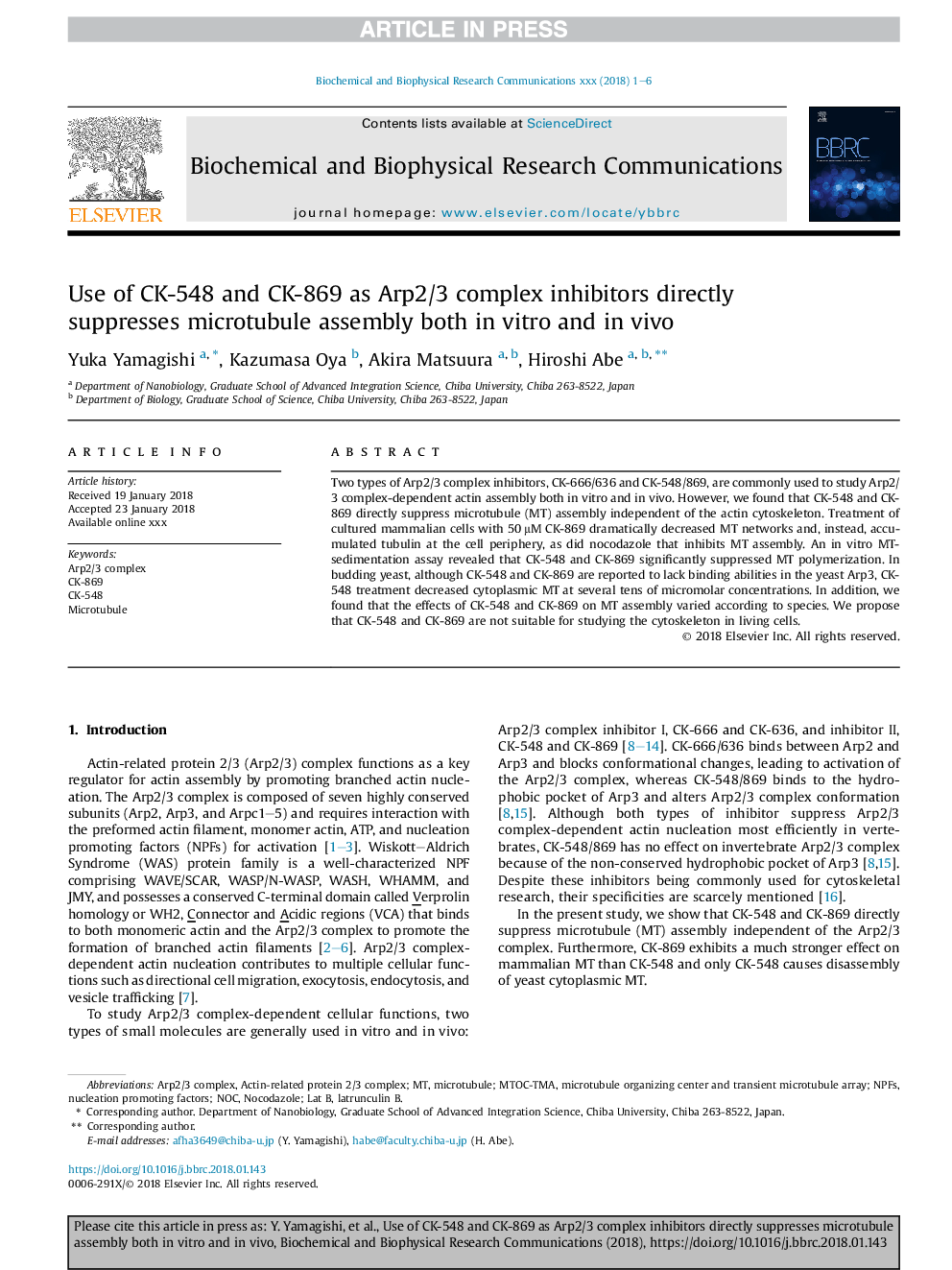| Article ID | Journal | Published Year | Pages | File Type |
|---|---|---|---|---|
| 8294495 | Biochemical and Biophysical Research Communications | 2018 | 6 Pages |
Abstract
Two types of Arp2/3 complex inhibitors, CK-666/636 and CK-548/869, are commonly used to study Arp2/3 complex-dependent actin assembly both in vitro and in vivo. However, we found that CK-548 and CK-869 directly suppress microtubule (MT) assembly independent of the actin cytoskeleton. Treatment of cultured mammalian cells with 50â¯Î¼M CK-869 dramatically decreased MT networks and, instead, accumulated tubulin at the cell periphery, as did nocodazole that inhibits MT assembly. An in vitro MT-sedimentation assay revealed that CK-548 and CK-869 significantly suppressed MT polymerization. In budding yeast, although CK-548 and CK-869 are reported to lack binding abilities in the yeast Arp3, CK-548 treatment decreased cytoplasmic MT at several tens of micromolar concentrations. In addition, we found that the effects of CK-548 and CK-869 on MT assembly varied according to species. We propose that CK-548 and CK-869 are not suitable for studying the cytoskeleton in living cells.
Related Topics
Life Sciences
Biochemistry, Genetics and Molecular Biology
Biochemistry
Authors
Yuka Yamagishi, Kazumasa Oya, Akira Matsuura, Hiroshi Abe,
